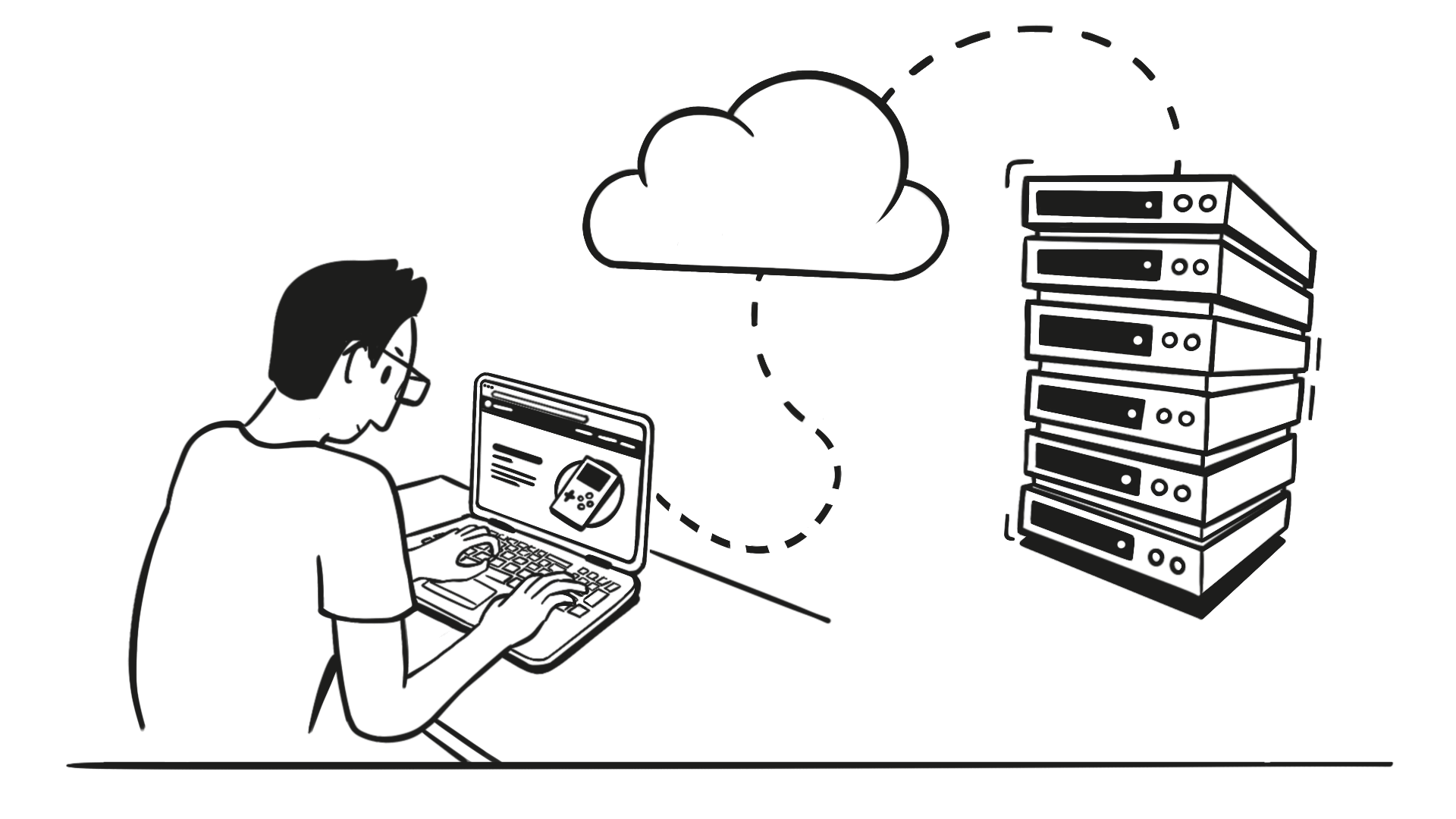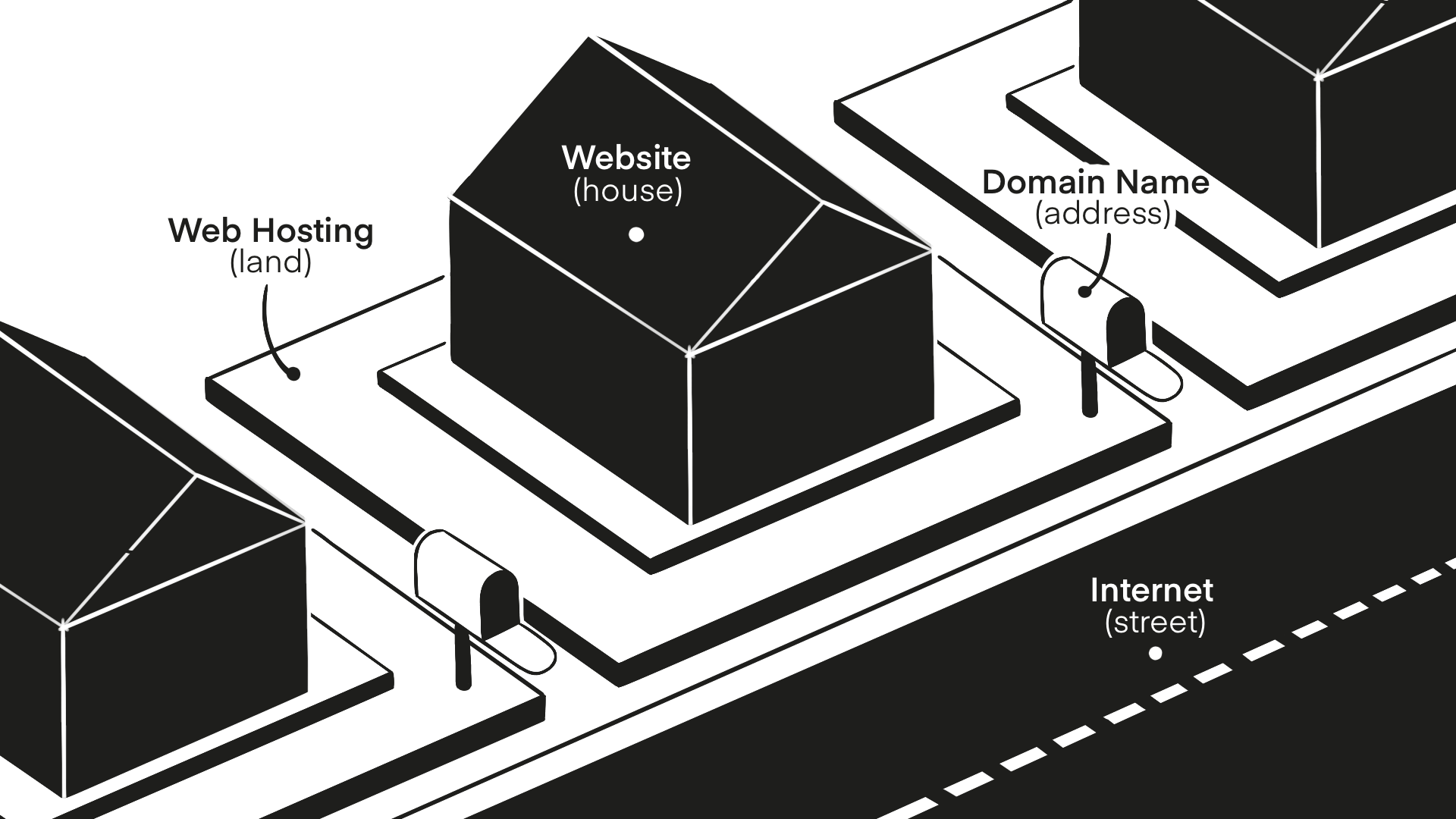You may have heard of web hosting; it’s a common term that web agencies throw around. But, we have found that many people are not 100% sure about what web hosting is. Well, let us tell you!
On average, users spend 6 hours and 42 minutes online each day (Source), half of which is on mobile devices. The “behind the scenes” action is still a mystery to many. Even though the phrase “web hosting” gets thrown around, it is not detrimental to your website for you to not know. However, it is good to understand so that you know what’s going on!
So, that is why we have created our beginners guide to web hosting. We will be explaining the ins and outs of web hosting, different types of hosting, essential features and hosting terminology.
Table of contents:
- What is hosting?
- Do I need hosting?
- What are the different types of hosting?
- Essential features of hosting
- Web Hosting terminology
- Frequently Asked Questions
What exactly is web hosting?
Overall, web hosting is an online service that enables an organisation / individual to publish your website on the internet. Let’s treat your website as your property. When you sign up for hosting, you are essentially renting space on a physical server. So, if you are renting a house (website), you are renting the land.
While some may think of websites only existing digitally, the truth is, a website requires physical resources to power Internet content. This power is generated in the form of servers.
So, a server keeps your website “living”. A server is a physical computer that runs without interruption, so your website is available at any time for anyone to find. Therefore, your web hosting is responsible for keeping that server running, protecting it from hackers, and making sure content is being transferred (such as images, text, files, etc.) to your visitor’s browser.
So, do I actually need hosting?
Your website is only helpful if it’s accessible to your customers. Most people have heard of servers “crashing,” which can happen for several reasons. A good web hosting service provider makes sure their servers are operational as close to 100% of the time as possible.
Also, when you decide you want to create a website, you NEED to find a web hosting provider that will supply you with that server space. Your hosting stores all relevant and necessary files, assets and databases on the server. Consequently, when someone types your domain name into their browser’s address bar, your host transfers all the files necessary to serve that request.
If we go back to our house analogy, treat your domain name as your address. Someone can only find you if they have your web address. The same as with a house address! So it is crucial that your hosting supplies your server space so your domain is securely stored.
Then finally, you have the internet. See this as the street. Users will browse the internet to find what they are looking for. So, like a house, you may need to walk down the street to find the correct house.
Ultimately, yes, web hosting is essential! If you want your website to live – you need hosting. You need your website to be easy to find – just like your home.
What are the different types of hosting?
Every website is different. Each one has its unique needs. Consequently, a variety of hosting services are available. Some are pretty common, whereas others are very specialised. The type that’s best for your business will depend on various things, including the type of business, the amount of website traffic, and how many visual assets are on your site.
A single server is shared among multiple users. Entry-level form of hosting. This form of hosting is ideal for businesses that have a small, simple site with moderate traffic.
A single physical server divided into multiple virtual spaces used to host individual websites. Perfect for businesses with a more extensive, more heavily trafficked website that can spend a bit more money for additional control / resources.
A virtual server that runs in a cloud computing environment and stores data across a network of servers. Small to medium businesses that require more resources than shared hosting. Such as the ability to handle traffic increases suddenly.
A server that is rented to a single customer. This form of hosting is ideal for businesses with large, high-traffic websites that require many resources and can afford a higher monthly price.
Specialised hosting with features ideal for online stores, including shopping carts, inventory management and payment gateways. Therefore, online stores or physical shops that want to sell their products online would benefit from this hosting option.
A form of hosting that lets a user purchase server space, divide it, and then resell it to other customers. So, individuals or businesses with technical knowledge who want to earn money by reselling server space to other customers could opt for this hosting.
There is also another form of hosting that you may have heard of – Managed Web Hosting. This is not a separate form of hosting, but a service that web hosting providers offer to customers. Primarily those using dedicated servers or VPS hosting. With managed hosting, the hosting service provider will handle the server’s set-up, administration, and support, whereas unmanaged hosting is the customer’s responsibility.
7 Key features of web hosting that you NEED
Every website has to has its own unique name. Just like a home address, everyone’s is different. While there is the option to register your domain name separately from your hosting plan – some may offer you domain hosting included.
Even though there are different sizes of servers, there is only so much capacity for storing files. Therefore, you need to accommodate the size of your website when choosing your plan. So, for example, shared hosting is typically sufficient for text-heavy sites with a few pages. In contrast, larger sites with lots of high-resolution images and streaming media may require the amount of storage only a VPS or dedicated server can provide.
With Google’s Core Update penalising sites with slow loading speeds, you need to make sure you can offer a good user experience. Therefore, the speed of your website will determine its success with SEO. When selecting a hosting service provider, take a look for Solid-State Drives (SSD) and a Content Delivery Network (CDN), and have servers in multiple locations. These factors contribute to better speeds!
Some types of hosting – like the cloud option – allow sites to increase resources whenever they need to. Many hosting service providers offer different types of hosting, so if a website launches with shared hosting, it can upgrade to VPS or dedicated hosting when it outgrows its storage and bandwidth limitations.
Similar to storage, bandwidth depends on the site. A website with lots of traffic will require more bandwidth than a website with less than 100 views a day.
A good web hosting service will ensure its servers are running as close to 100% of the time as possible.
As well as good hosting, you want a reliable tech team. Whenever you have an issue, you want to have a professional and dependable team to get in touch with. Therefore, look for companies that offer fast resolve times, and you can email at any time.
Common hosting terminology
Server – a computer that provides data to other computers by running specific software depending on the server type.
Internet Protocol (IP) Address – This is a unique number that identifies your website and connects visitors to it from their browser. However, this number is usually challenging to remember as it is a long string of numbers. Therefore, website addresses are simplified to domain names.
Domain Name – This is your website’s name. A visitor will enter your domain name into their browser’s address bar to access your site. To prevent multiple websites from having the same name, you have to register your name with a domain name registrar.
Bandwidth – The measurement of how much data can flow through a connection in a given time amount. If you have a limited amount of bandwidth, this will affect the speed of your site.
Uptime – This term refers to the amount of time a server is running correctly.
WordPress – Our developers platform of choice when it comes to building websites. One of the most popular content management systems. WordPress allows users to update websites and publish blogs.
Frequently Asked Hosting Questions
Q) Can I switch web hosts?
If your website is built on WordPress, you have more flexibility in moving hosting providers. Some people may use hosting providers that are tied to website builders. In this case, your website explicitly linked to that host. This is something to consider when deciding how you will create your website.
Q. How do I know what type of hosting I need?
Your website will determine the hosting service you require. Depending on your website’s purpose, size, and expected traffic will impact your hosting selection. For example, if you have a small, information-based website, you will require less server space than a large e-Commerce website.
Q. How much does web hosting cost?
This depends on which hosting you choose. The cost of hosting typically increases with the number of resources. We have hosting packages starting from £28 (+VAT). But each hosting package depends on the varying levels of website management, back-ups and time dedicated to your website.
Overall, web hosting is a type of service you need if you want to publish a website on the internet. So, if you are looking to move hosting providers or want to build your website, get in touch with geek.


